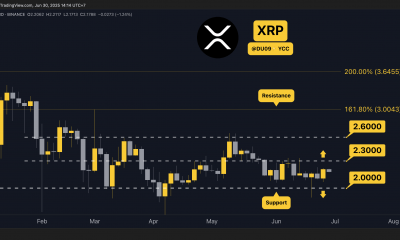Forex
Hong Kong dollar crisis: Traders increase their bets on Hong Kong dollar decline

Hong Kong dollar crisis: Traders increased their positions on the Hong Kong dollar decline. The exchange rate of this currency fell by almost 1% after an 18-month peak in December. The decline of the inter-bank loans rate resulted in the widening of the gap with rates similar to those in the U.S. to the maximum since 2008. The wide spread made it profitable to buy Hong Kong currency – traders could borrow it cheaply and sell it for U.S. dollars, which have higher rates.
Are we in for a Hong Kong dollar collapse?
The benchmark foreign exchange market in Hong Kong HIBOR (Interbank Offered Rate) has gone into a decline. Now HIBOR is 160 bps lower than LIBOR, which is calculated for several currencies, including the U.S. dollar. For comparison: in early December HIBOR was 90 bp above LIBOR. Today the Euro / U.S. Dollar rate looks more optimistic.
According to Kelvin Lau, senior economist at Standard Chartered (LON:STAN) Bank Hong Kong, the fall in the Hong Kong dollar was exacerbated by the high-base effect.
“The combination of a less tight Fed rate outlook and improved prospects for a resumption of local market operations likely fueled expectations for renewed capital inflows,” Lau said.
Banks expected limited currency liquidity after the holidays in December, but their initially pessimistic forecasts didn’t materialize. Analysts at Oversea-Chinese Banking believe the USD/HKD pair is likely to remain above the 7.80 level in the short term. The growth potential of the HIBOR – LIBOR spread is limited, experts said. The exchange rate of HKD was 7.83 on January 27.
Bill Ackman, founder of hedge fund Pershing Square (NYSE:SQ), said last November that he was betting on Hong Kong’s currency falling and ending its peg to the U.S. dollar. Hayman Capital founder Kyle Bass and billionaire George Soros shared the same pessimistic view of Hong Kong’s currency.
Earlier we reported that Brazil and Argentina want to create their own “euro”.

 Forex3 years ago
Forex3 years agoForex Today: the dollar is gaining strength amid gloomy sentiment at the start of the Fed’s week

 Forex3 years ago
Forex3 years agoUnbiased review of Pocket Option broker

 Forex3 years ago
Forex3 years agoDollar to pound sterling exchange rate today: Pound plummeted to its lowest since 1985

 Forex3 years ago
Forex3 years agoHow is the Australian dollar doing today?

 Cryptocurrency3 years ago
Cryptocurrency3 years agoWhat happened in the crypto market – current events today

 World3 years ago
World3 years agoWhy are modern video games an art form?

 Commodities3 years ago
Commodities3 years agoCopper continues to fall in price on expectations of lower demand in China

 Economy3 years ago
Economy3 years agoCrude oil tankers double in price due to EU anti-Russian sanctions



























